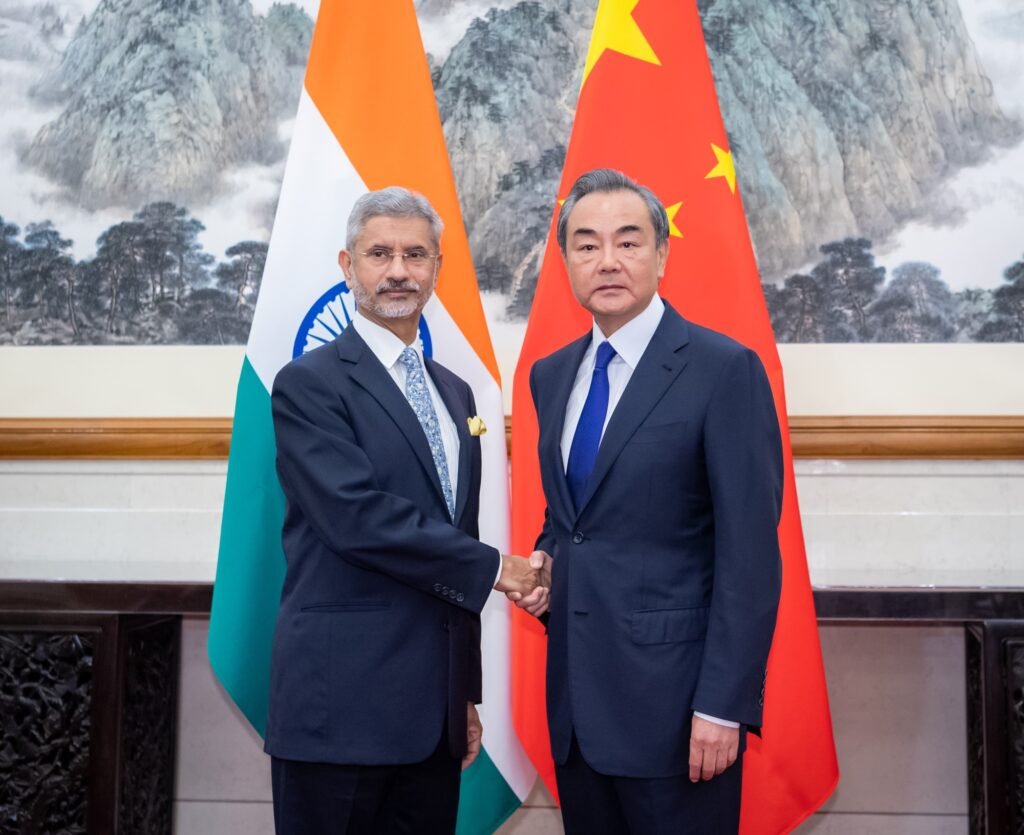
Some two years into the military standoff along the LAC, Chinese Foreign Minister Wang Yi paid a short visit to India last month. It was a visit shrouded in secrecy even as other parts of Yi’s itinerary were well-publicised – his visits to Pakistan, Afghanistan and Nepal. At times in diplomacy secret visits are certainly intended to break longstanding logjams and demonstrate a commitment to the resolution of conflicts. But this was no such visit. It was primarily aimed at testing Indian resolve and to assess if the changing global geopolitics may have made New Delhi more amenable to give in to China, much like in the past.
There used to be a time when railing against western imperialism with “like-minded” powers like China and Russia used to the high-water mark of Indian global footprint. The Russia-India-China (RIC) trilateral emerged in the context of American unipolar moment in the immediate aftermath of the end of the Cold War. This RIC then morphed into BRIC and then BRICS as the global economic order underwent a transformation with the emergence of China and India as key economic powers. As part of these platforms India tried to forge a partnership with China based on their shared global outlooks. It was argued that this global convergence would eventually lead to a bilateral convergence as the two nations with divergent interests would be able to reconcile them by focusing on international challenges. It was another matter that China’s global interests were far expansive than India’s and that there was hardly any hope beyond some tactical coordination at the global level. In the process, Sino-Indian bilateral ties suffered and India’s global footprint was weighed down by the contradictions of Sino-Indian global engagement.
But myths, once forged, attain a life of their own. And Indian foreign policy perpetuated the same till it was once and hopefully forever shattered by the bloody clashes of June 2020 in the Galwan Valley leading to the deaths of 20 Indian soldiers. Since then, New Delhi has been steadfast that normalisation of ties with China won’t be possible without peace and tranquility along the LAC. As External Affairs Minister S. Jaishankar has suggested “our [India’s] relationship (with China at present) is not normal, given the presence of a large number of troops in contravention of the 1993-96 agreements.” This message was also reiterated by National Security Advisor Ajit Doval who was invited by Wang Yi to visit China to take forward the Special Representatives talks on border issues only to be told that this would be possible only after disengagement and eventual de-escalation at the LAC.
Wang Yi was fully aware of Indian demands. He has been in regular touch with Indian interlocutors over the last two years. Beijing is fully aware of the sensitivities of India on this issue. But being sensitive to Indian concerns is not something that is a priority for the Chinese. Just before he landed in India, he weighed in on the issue of Jammu and Kashmir at the meeting of the Organisation of Islamic Cooperation (OIC) in Pakistan, knowing fully well how this will be received in India. When Wang Yi said Beijing “heard the call of many Islamic friends” over the Kashmir issue, adding that it “share the same aspiration,” MEA’s reaction was swift and pointed. It named the Chinese Foreign Minister in rejecting his reference to India, reminding him that not only does China have no locus standi on the matter but also that India refrains from public judgement of its internal issues.
Still Wang Yi landed in New Delhi. The atmospherics were all wrong, the optics terrible and the underlying factors that make for a successful diplomatic trip absent. He came for a specific reason. Beijing has no interest in normalisation. Their unprecedented military mobilisation along the LAC is a sign that they are not likely to relent in their long-term goal of trying to make India bend to their will. But they have a short-term problem with the BRICS summit meeting approaching and they view the Russia-Ukraine crisis as an opportunity to lure India into making some grandiose assertion about Russia, China and India standing up to the West.
China is worried about the trajectory of the Ukraine crisis. After having embraced Putin during the Winter Olympics with a “no limits” partnership, it can’t afford to ignore him. At a time when Xi Jinping’s focus should have been on the economic revival of China post pandemic, there is a Covid resurgence and a global conflict. China is far more exposed to the global economy than Russia ever was and the vulnerabilities for China are readily apparent. The West has not given any indication that it is willing to shift its focus away from the Indo-Pacific any time soon even as it has been more understanding of Indian position on the Ukraine crisis. As the Chinese position gets ever so precarious, wooing India to seek a common ground remains an option for Beijing which it is trying hard to operationalise.
But New Delhi only has to look to this visit of Wang Yi to see that there is no fundamental reassessment in Beijing about its India policy. It’s still about targeting Indian vulnerabilities – be it making a common cause with Pakistan on Kashmir or with the Taliban in Afghanistan. Wang Yi’s visit would seem curious only to those who have no understanding of how China operates. There was a method in this madness. Only this time, Indian policymakers seem to have kept their own sanity. Hopefully, there won’t be any going back.






Add comment